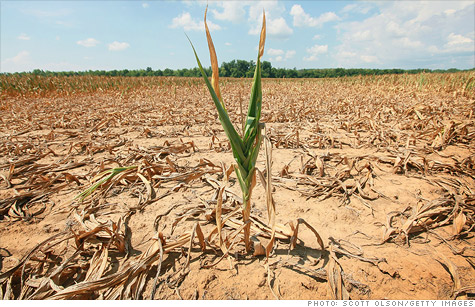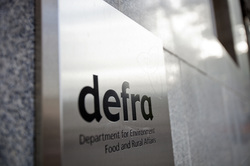
We have had less than half our average rainfall for the third month in a row, and driving through the countryside it is obvious that spring sown crops are struggling to get going. We were promised much needed rain at the weekend which failed to materialise.
The Lupins having survived bird damage thanks to the efforts of my small army of vigilant, eagle eyed and enthusiastic guns. But now they are under siege from a legion of slugs. These silent but deadly creatures can cause considerable damage. They can destroy a crop almost overnight, and appear to come from nowhere.
Market prices are still low, there seems little on the horizon which could trigger a rise in expectations, except perhaps at the expense of other’s misfortunes.
The Sussex landscape despite the low rainfall, still looks green and productive. We should be thankful that we are not experiencing the dramatic and severe water shortage that farmers in other parts of the world are facing.
The Farmers Weekly recently noted that agriculture accounts for 70% of the world’s fresh water use, yet 28% of all cropped land globally, is located in areas of high to extremely high water stress.
Cereal crops in the US grain belt, most of Spain, Italy and vast parts of China and India fall into these areas, as well as parts of eastern England and the midlands.
Brazil, one of Latin America’s biggest agricultural producers, is facing what is thought to be its worst drought in 80 years, with coffee beans and sugar cane production suffering.
Last December Australia’s agricultural minister launched a £51m drought recovery fund for struggling farmers, as large parts of Queensland and some parts of New South Wales were experiencing the worst dry conditions on record.
This week we heard that farmers have agreed to cut back by 25% the amount of water they extract, as the rivers of California are running dry since they are deprived of rain and snow melt. It has been suggested it is the worst four year drought period in the last thousand years!
Some farmers have resorted to hiring digging crews to tap into the below-ground water table, by redeploying rigs from the oil fields of Texas, to meet the demand.
Questions are being asked regarding the state’s immigration policy, as since 1990 there has been a 10 million population explosion, mostly immigrants. It is acknowledged that this is not the cause of the drought but is considered to be part of the problem.
California’s agricultural industry uses 80% of all water used in the state. It is estimated that last year 500,000 acres of farmland were left fallow as a direct result of the drought. This year that figure may well rise to 1m acres. Difficult decisions are being made in an attempt to cope with the crises, including culling livestock and cutting jobs.
The impact upon global food prices will surely reflect food shortages as countries across the world struggle to combat increasing water shortages, whether population driven or through the current climate cycle.
Water conservation of all kinds is increasingly important and governments must invest in research and developing innovative ways to capture this diminishing but vital resource. Water today is more essential than oil.
Who controls oil fields and their revenue causes disputes and discord, but these will be insignificant compared to conflicts and mass population migration due to water shortages. This problem has historically been considered a third world problem, but today as the cost to humans and resources become increasingly evident world-wide, governments must act appropriately.
In years gone by when the UK has faced dry summers, and stand pipes have been deployed, there has been talk of building new reservoirs, ponds and lakes to conserve this precious resource. But following a few wet winters and indeed some summers, these balls have been kicked into the long grass. Now as we look around the globe and witness the devastating results due to the reduction of this precious resource, it is time for the UK government to retrieve those balls, and devote time and resources into making our country less wasteful and better prepared.
As the Prime Minister hands out ministerial jobs perhaps he could consider including a minister for water, and also one for ‘population’.
Land which lies wet and is unproductive should be utilised for water storage, creating small scale water habitats and bird sanctuaries. The Fresh Water Habitat Trust launched its ‘Million Pond Project’ in 2008 to create a network of new ponds across the UK to reverse a century of pond loss.
Phase 1 has seen 1,000 new ponds created, and now Phase 2 plans a further 30,000 up to 2020. This fifty year project is designed to ensure the UK creates and supports over one million ponds.
This is certainly an admirable project for wildlife, the environment and water conservation, which is increasingly essential, and one which farmers and landowners should consider supporting where appropriate.
Carola Godman Irvine




 RSS Feed
RSS Feed